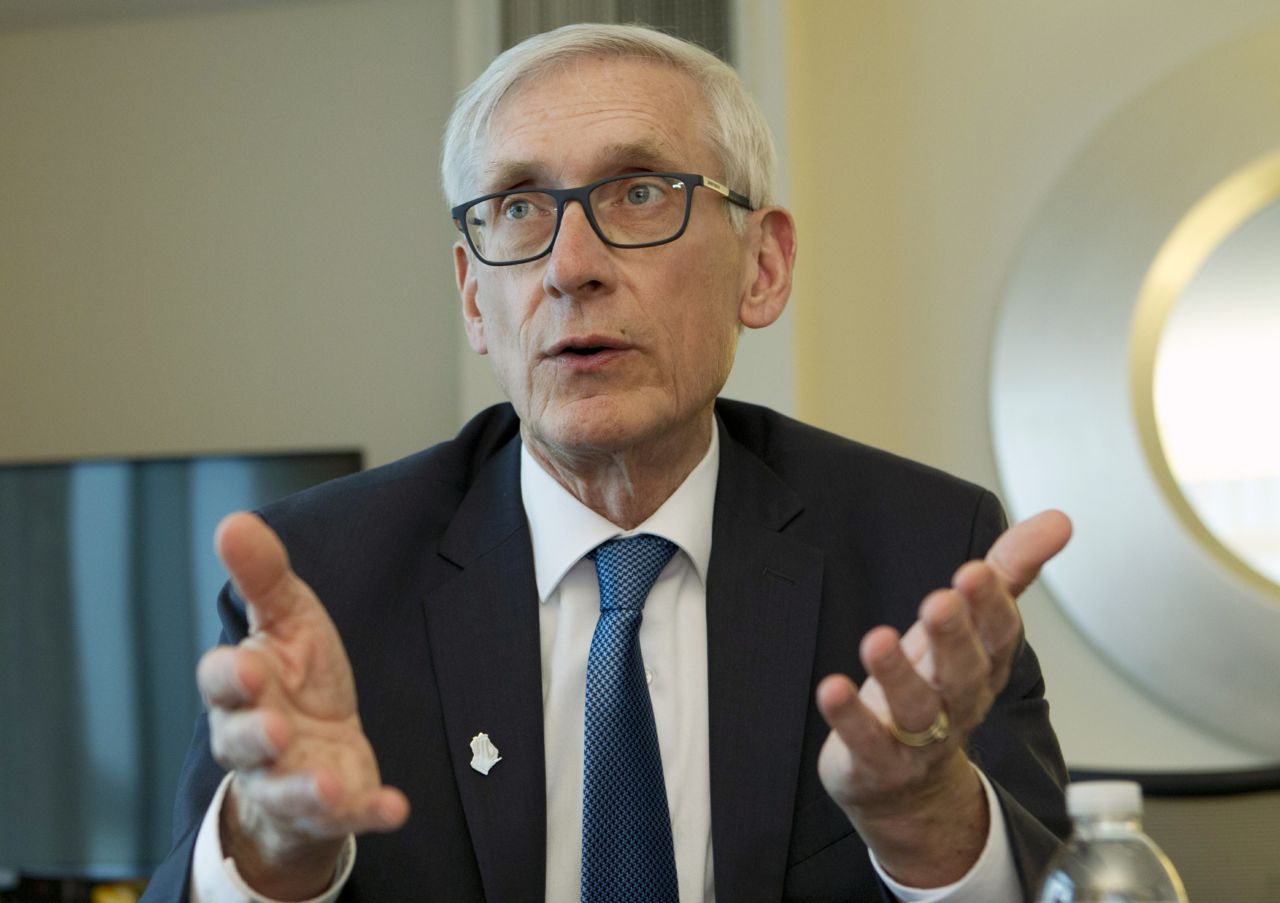Politics
A look at Gov. Tony Evers’ partial budget vetoes

MADISON, Wis. (AP) — Democratic Gov. Tony Evers used his partial veto power to make 78 changes to Republican legislators’ version of the state budget before signing it Wednesday.
The last budget, when Republicans controlled all three branches of the government, under Scott Walker, the budget didn’t get passed until Sept. 21, 2017, nearly three months past the deadline.
The budget takes effect immediately and Republicans do not have the votes needed to override any of the vetoes.
Here’s a look at some of the most significant revisions and Evers’ explanations:
SCHOOL AID
Evers increased funding for K-12 public schools primarily by raising the per-pupil state aid amount to $742 in each of the next two fiscal years, up from the $679 and $704 Republicans put in the budget. Evers’ changes will result in net increase of $65 million for schools above the $505 million in additional aid that Republicans provided.
DRUG TESTS AND WORK REQUIREMENTS
Evers removed funding to implement and enforce new work and drug screening requirements for able-bodied adults on the state’s food stamp program. Evers opposed the requirements, which have yet to be implemented, but Republicans refused to remove them. So, Evers just took away the funding, effectively blocking them.
TESLA DEALERSHIPS
Evers wiped out a provision that would have allowed Tesla to open dealerships in Wisconsin. Republicans added the language a day before the state Senate voted to pass the budget to secure key support from Republican state Sen. Chris Kapenga. Evers wrote that he objects to making such a dramatic change so late in the budget process without public debate.
CAPITOL SECURITY
Evers scrapped provisions that would have required the Department of Administration to study security at the state Capitol in consultation with the city of Madison Police Department. Evers said he objects to releasing information about potential security gaps in a public report and the Capitol Police, not city police, handles security at the Capitol. He did direct the Capitol Police to review existing Capitol security plans with input from city police.
LIEUTENANT GOVERNOR
Evers erased Republican language that would have limited how much the Wisconsin Department of Transportation can spend on state patrol protection for Lt. Gov. Mandela Barnes, the first African American to hold the post in Wisconsin. Evers wrote that the language undercuts the state patrol’s judgment. He also called the language politically driven and said it was intended to undermine Barnes.
CORRECTIONS MERIT PAY
Evers restored discretionary merit pay for Department of Corrections administrative and central office employees. Evers said Republican provisions blocking merit pay for DOC workers infringed on the Department of Administration’s authority to administer state employees pay policy, every other state agency can award merit raises and DOC needs every tool to combat a worker shortage.
NEW PRISON
The governor scratched a plan to spend $5 million to start bids and acquire property for a new prison to replace the aging Green Bay Correctional Institution. Evers wrote that he objects to building a new maximum security prison without more public input.
YOUTH PRISON
Evers restored $25 million in funding to pay for new state facilities to replace the Lincoln Hills/Copper Lake juvenile prisons. He diverted $22 million in construction grants for non-state organizations toward a new state facility for juvenile offenders, a move subject to state Building Commission approval. Evers also increased funding to allow for the full $59 million needed to expand the Mendota Juvenile Treatment Center in Madison.
QUARRIES
The governor eliminated Republican-authored language that limits local governments’ authority to regulate quarries. Evers objected to the changes, which his predecessor Gov. Scott Walker also vetoed, without a chance for public debate.
ROADS
Evers dumped Republican provisions that would have allowed the Department of Transportation to spend up to $2.5 million on a study on tolling and mileage-based fees. Evers said he objects to spending money on another study that will only show that the most effective way to pay for roadwork is to raise the gas tax.
TRUCK FEES
Evers eliminated provisions that would have created a standard $100 truck registration fee. The move keeps the state’s current poundage-based tiered registration fees in place. Owners of trucks under 6,000 pounds pay a uniform $100 fee, owners of trucks between 6,000 and 8,000 pounds pay $106 and owners of trucks between 8,000 and 10,000 pounds pay $155. The governor wrote he objects to forcing owners of lighter vehicles to pay the same as heavier trucks that do more damage to the roads.
CHARGING STATIONS AND BUSES
The governor provided $10 million for electric car charging stations and $15 million to replace buses, erasing a Republican plan that would have spent just $3 million only on bus replacements. The money comes from a multistate settlement with Volkswagen to resolve allegations that the car manufacturer used special software in its vehicles to circumvent emissions standards.

